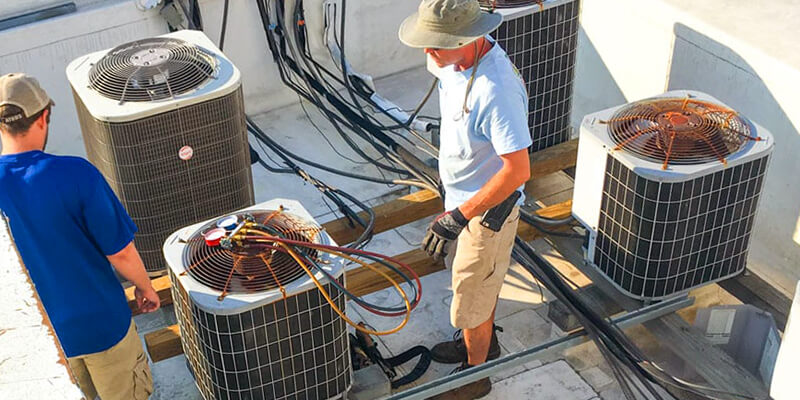Clean, fresh air is essential for our health and well-being, but it can be challenging to come by. In fact, indoor air quality can often be worse than outdoor air due to hidden pollutants like dust, mold, and pet dander. Breathing in these harmful contaminants can lead to respiratory issues and other health concerns. The good news is, by taking a few simple steps, we can significantly improve the air quality in our homes. Regularly cleaning and ventilating our living spaces, investing in air purifiers, and being mindful of potential sources of pollution can all make a big difference. By prioritizing our health and taking action to improve our indoor air quality, we can breathe easily and enjoy the benefits of fresh, clean air.
The Hidden Dangers of Poor Air Quality
Poor indoor air quality may seem harmless, but it can have severe consequences for our health. From irritating our eyes, nose, and throat to exacerbating allergies and asthma, the effects of polluted indoor air can be both immediate and long-lasting. Unfortunately, the issue is often overlooked, and we continue to expose ourselves to harmful pollutants without even realizing it. In addition to physical health, poor indoor air quality can also impact our mental health, leading to symptoms like fatigue, irritability, and difficulty concentrating. By being mindful of potential sources of pollution and taking steps to improve indoor air quality, we can protect our health and well-being, both now and in the future.
Health Effects of Poor Air Quality in Your Home
The impact of poor air quality on our health is not to be underestimated. Breathing in harmful pollutants like dust, pet dander, and mold spores can lead to a range of respiratory issues, from coughing and wheezing to more serious conditions like bronchitis and pneumonia. Additionally, exposure to poor indoor air quality can exacerbate allergies and asthma, leading to uncomfortable and even dangerous symptoms. By prioritizing our indoor air quality and taking steps to improve it, we can help protect our respiratory health and prevent long-term damage.
Here’s a table comparing high-quality air in a home versus low-quality air in a home:
Identifying Common Indoor Air Pollutants
Indoor air pollutants can come from a variety of sources, and identifying them is the first step in improving indoor air quality. Some common indoor air pollutants include dust, mold, pet dander, and volatile organic compounds (VOCs) from household cleaning products and building materials. These pollutants can irritate the eyes, nose, and throat, cause respiratory issues, and even contribute to long-term health problems. Regularly cleaning and maintaining your home, as well as using natural cleaning products and avoiding smoking indoors, can help to reduce the number of pollutants in the air you breathe
Sources of Indoor Air Pollution
Indoor air pollution is a complex issue, with many different sources contributing to the problem. Some of the most common culprits include dust, mold, pet dander, tobacco smoke, and household chemicals. Poor ventilation can also exacerbate indoor air pollution by trapping pollutants inside. Understanding the sources of indoor air pollution is the first step toward improving indoor air quality. By being mindful of potential sources of pollution and taking steps to address them, we can reduce our exposure to harmful contaminants and breathe easier in our homes.
Steps You Can Take to Improve Indoor Air Quality
Improving indoor air quality doesn’t have to be a daunting task. Simple steps like keeping your home clean, reducing clutter, and avoiding smoking indoors can go a long way in reducing indoor air pollution. Adding indoor plants like spider plants or peace lilies can also help to naturally purify the air. For those looking for a more high-tech solution, air purifiers can effectively filter out pollutants and allergens. By taking these small steps, you can significantly improve the air quality in your home and protect your health and well-being.
How to Properly Maintain Your HVAC System
Maintaining your HVAC system is crucial to ensure that it is functioning efficiently and effectively. Here are some tips to keep your system in top condition:
● Change the air filters regularly to prevent the buildup of dust and debris.
● Keep the outdoor unit clean and clear of any obstructions.
● Schedule annual maintenance with a licensed technician to check for any potential issues.
● Ensure that the ductwork is properly sealed to prevent air leaks.
● Use a programmable thermostat to optimize energy usage and improve system performance.
By following these simple steps, you can keep your HVAC system in great shape and enjoy clean and healthy indoor air quality all year round. Remember, regular maintenance can save you money in the long run by preventing costly repairs and ensuring that your system is running at peak efficiency.
Call Right Choice Heating and Air to Improve Air Quality in Your Home!
The Right Choice Heating and Air is a premier HVAC company that offers a wide range of services to improve the air quality in your home or business in Dallas, TX. We understand the importance of clean and fresh air, which is why we offer services such as air duct cleaning, air purifier installation, and HVAC maintenance to ensure that your indoor air is free from harmful pollutants and contaminants. Our team of experienced technicians uses state-of-the-art equipment and techniques to provide high-quality services that are tailored to your specific needs. Whether you’re dealing with allergies, asthma, or other respiratory problems, The Right Choice Heating and Air can help you breathe easier and enjoy a healthier living environment. With our commitment to customer satisfaction and affordable pricing, we are the right choice for all your HVAC needs.



